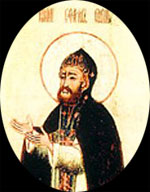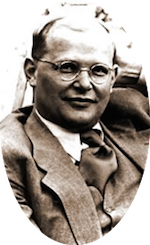When Is It Okay to Disobey?
Catholics and Civil Disobedience
by Fr. Frank Pavone (Catholic Answers). «How does one determine whether a law is just or unjust? A just law is a man made code that squares with the moral law or the law of God. An unjust law is a code that is out of harmony with the moral law. To put it in the terms of St. Thomas Aquinas: An unjust law is a human law that is not rooted in eternal law and natural law. Any law that uplifts human personality is just. Any law that degrades human personality is unjust. . . . One who breaks an unjust law must do so openly, lovingly, and with a willingness to accept the penalty. I submit that an individual who breaks a law that conscience tells him is unjust, and who willingly accepts the penalty of imprisonment in order to arouse the conscience of the community over its injustice, is in reality expressing the highest respect for law.»
On Resistance: What are the Options?
by James Kalb (Crisis Magazine). «So we shouldn’t burn incense to Caesar, and we shouldn’t participate in abortion or solemnization of same-sex ‹marriage.› But what else shouldn’t we do? The scope of government is much broader than in the past. How far does the right or duty of conscientious objection go when an activist government—and all Western governments are activist—attempts to remake society down to the level of the family in ways at odds with natural law and the common good? To what extent should we treat not just specific acts but large parts of a system designed to advance ‹social reform› as something we must reject and resist?»
The Catholic Church Will Survive: Putting Crises in Perspective
by Thomas L. McDonald (National Catholic Register). «The Church is always in some form of turmoil or another; sometimes great, sometimes minor. Powerful people may try to drive us to the very edge of schism. The faithful will continue to be confused. It was ever thus, from the first day James and John argued about who got to sit in the places of privilege. We were given a divine institution, and we handled it with our usual mix of glory and corruption...Relax. The Church has been through worse.»
Prescience in Morris West’s Vatican Trilogy
by F. J. Rocca (Crisis Magazine). «I was startled to find that, while Morris West had no delusions about the church, which he saw not so much as the representative of, but the incarnation of, his Roman Catholic faith, he spelled out in clear and vibrant terms how faith was not in conflict with the human intellect, but was in fact an integral part of its processes on a very high and complex level. It was then that I began to see the light of my religion and the Church’s value as nothing less than the greatest agent of civilization in all of known history. I still occasionally wandered from the path of my faith, again out of intellectual confusion, but I always returned to it. I attribute that return in part to what I got from Morris West’s books and can attest to the effectiveness of his intellectual and religious authority to influence me in a spiritually salvific way.»
The Remarkable Life of Dorothy Day
by Mike Aquilina (OSV Newsweekly). «She has been called ‘a saint for our time’ — here is the story behind the writer, activist and candidate for sainthood.»
Subscribe to:
Post Comments (Atom)


















No comments:
Post a Comment